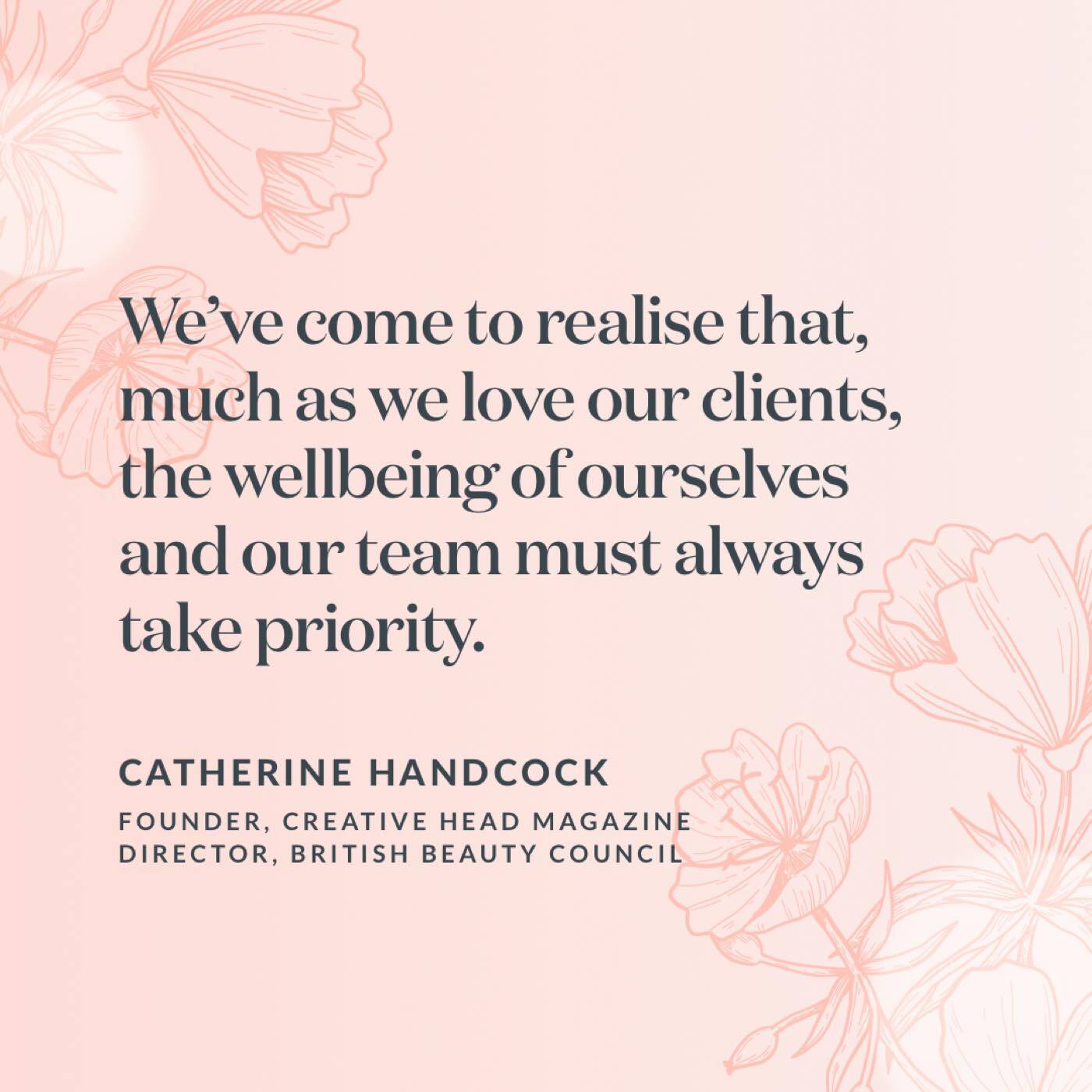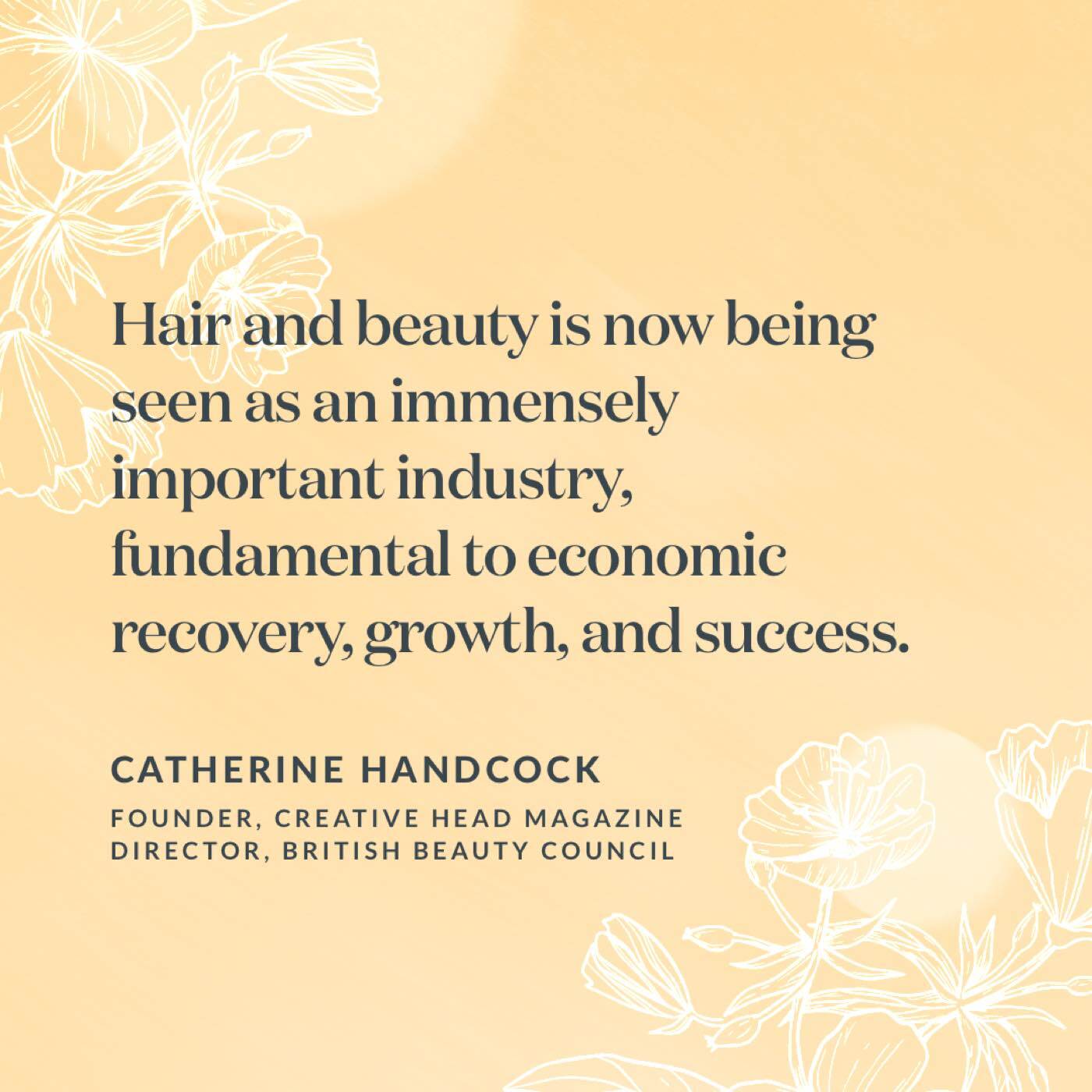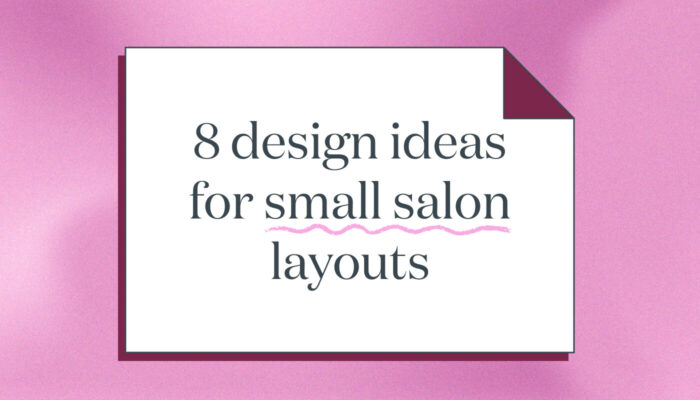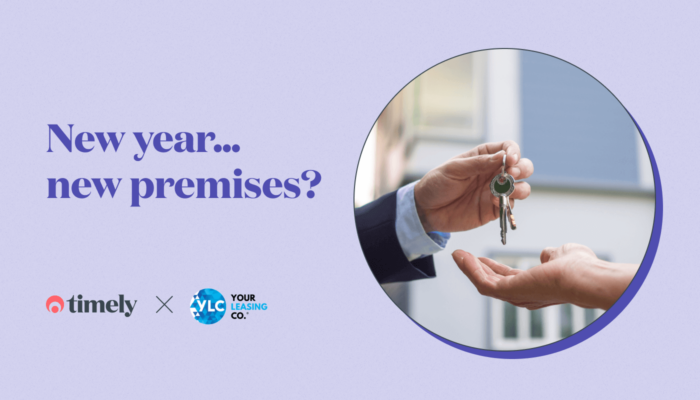Embracing positivity
Salon industry icon Catherine Handcock is founder of Creative HEAD Magazine, director of the British Beauty Council, and managing director of The Industry. Here, she talks to Timely about progress, positivity, and post-COVID recovery.
How have attitudes towards reopening changed since the first lockdown?
At the end of the first lockdown, there was unprecedented client demand for appointments. Hair and beauty industry professionals ended up working 12-hour shifts, seven days a week, which was completely understandable, but which led to high levels of stress, overwhelm, and exhaustion.
The positive that came from this was a hugely increased awareness of the importance of workplace wellness. We’ve come to realise that, much as we love our clients, the wellbeing of ourselves and our team must always take priority. That is going to be a key focus going forward, with salons operating under normal opening hours and scheduling their clients around parameters that safeguard the wellbeing of their workforce.
What can we look forward to once COVID restrictions are completely lifted?
It’s going to be phenomenal; the sheer opportunity ahead for the hair and beauty industry is extremely exciting. The value of the British beauty industry, according to the British Beauty Council, is £28 billion per year. We’re bigger than car manufacturing in the UK, we have a lot to be proud of.

Creative HEAD Magazine commissioned a report last year, called Making the Cut, and our research found that, in the five years prior to COVID, our industry had experienced 53% growth, clients were spending £6.3 billion a year in our salons, and 1,000 new salons had opened up.
Where can people read the Making the Cut report?
The report is available for anyone to read, for free, on the Creative HEAD website. It’s a really interesting piece of research that highlights both the positive progress that the industry is making, and also the challenges that we face.
What challenges does the industry currently face in the UK?
VAT is one issue, and organisations such as Save our Salons are campaigning for an immediate cut in VAT, in-line with that provided to the hospitality sector. The decline of apprenticeships is also worrying; they decreased by 30% between 2019 and 2020, and are predicted to go down again this year.
The report also helped us to understand a lot more about the challenges facing the self-employed. Very often, hair and beauty industry professionals go from being employed to suddenly owning their own salon or being self-employed, and they aren’t always completely prepared.
What positive progress is being made within the hair and beauty industry?
Over the last year, there have been enormous shifts in attitude within the industry, and about the industry. The hair and beauty industry has really found its voice and is no longer viewed as a ‘hobby’ profession. One of the really great things that resulted from the British Beauty Council valuation, is that we’re now being taken very seriously. Hair and beauty is now being seen as an immensely important industry, fundamental to economic recovery, growth, and success.
Within the industry, there has been so much solidarity between industry professionals who would usually be competitors, with many forming social media groups and networks to support each other and share information. Manufacturers and suppliers, such as Timely, have provided an incredible amount of support, content and free education. And clients now have much higher regard for, and place greater value on, the skills and service provided by professionals.

What are your predictions in terms of future industry trends?
The empowerment of the hair and beauty industry will continue. Our voice will keep getting louder and we will be taken ever-more seriously as a very valuable sector of society and the economy.
We will maintain the momentum in terms of increased awareness about wellbeing within the workplace. Gen Z, the age group who are currently looking at career options, are massively motivated by social good, so that will impact recruitment into the industry.
Specific to hair, the biggest changes trend wise will be in colour. Prior to the pandemic, one of the most lucrative areas of business for salon colourists was from clients wanting to cover their grey hairs. But lockdown has made people accepting of, and happy with, grey hair, so there are going to be a lot of new trends aimed at these clients. We’ll also see a new wave of younger clients embracing radical changes and wanting to be much more experimental with colour.
 Timely was the proud sponsor of the “Best New Salon Award” category in the Creative HEAD Magazine Most Wanted Awards. #MWIT20. On the 29th March, Mesart Hair Salon, Glasgow, was crowned champion of the Best New Salon category in a spectacular ceremony at Printworks in London.
Timely was the proud sponsor of the “Best New Salon Award” category in the Creative HEAD Magazine Most Wanted Awards. #MWIT20. On the 29th March, Mesart Hair Salon, Glasgow, was crowned champion of the Best New Salon category in a spectacular ceremony at Printworks in London.
From a business point of view, salon software will continue to transform the industry. Some salons and self-employed industry professionals do still rely on pen and paper, but the impetus is on to embrace technology. The competitive advantage will lie with those businesses who use software such as Timely to streamline processes and stay on-track and up-to-date with all aspects of business management.


